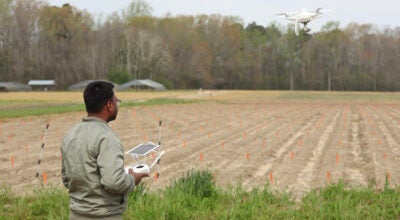Va. budget comes up short
Published 11:02 pm Wednesday, August 19, 2009
Amid a lingering national recession, Virginia’s budget situation continues to get worse, legislators learned in a special address by Gov. Timothy M. Kaine on Wednesday.
Updated state projections show that the commonwealth faces a $1.5 billion shortfall in revenues through 2010, Kaine said in the state capitol as legislators prepared for a special session that had been called in order to address potential judicial problems arising from a recent Supreme Court decision.
“Each of us is engaged in public service for many reasons,” he told lawmakers and others gathered in the Capitol building. “But all of us have chosen to serve in the midst of the most difficult economy since the Great Depression. It is an honor to serve, but it is particularly important to serve in the tough times, when there are no easy choices.”
Kaine outlined a bleak budget picture for the remainder of FY 2010, starting with a $300 million gap that had not been closed in 2009. Combined with a $1.3 billion shortfall that two advisory boards told the governor to expect in the current year’s revenue, that leaves a gap of $1.5 billion between budgeted revenues and projected expenses.
Kaine warned Virginians that the remedies will not be painless.
“We will close this gap, just as we have in past rounds, by relying on expense reductions, reprogramming of unexpended balances, targeted withdrawal of reserve funds, focused use of federal Recovery Act funds and other reasonable strategies,” he said.
“We will make these decisions carefully, but they will be painful to those who rely on public services in this most challenging time.”
Delegate S. Chris Jones (R-76th), a member of the appropriations committee in Virginia’s House of Delegates, praised the Democratic governor for his candor and proactive approach to the budget situation.
“I’m very pleased that we have the numbers out there now,” he said on the way home from Wednesday’s special legislative session, adding that legislators now have a chance to “have a solid dialog about what we need to do to right the ship.
“The governor has demonstrated that he’s willing to address the issue straight up, and I applaud him for that.”
Jones said he and other legislators would need some time to absorb the figures they’d been given Wednesday morning before they could make good recommendations about how to remedy the budget situation.
He and Kaine both noted that the governor has some authority of his own to cut state government expenses. Kaine said he is examining proposals submitted at his request in July for 5-, 10- and 15-percent cuts within executive agencies and that he expects to announce in September which of those plans he will implement.
Other savings could come as a result of changes made to the so-called “caboose budget,” which would be adopted during the General Assembly’s mid-fiscal-year session in 2010.
It was the fourth time in 15 months the governor had sought expense reduction plans from state agencies, Jones pointed out.
Virginia — though it has weathered the nation’s dragging recession better than many states — has faced an economic storm of historic proportions, with the state facing negative growth two years in a row for the first time in history.
Still, Kaine struck an optimistic note about the state’s economic future, quoting CNBC, which named Virginia 2009’s “Top State for Business” last month: “Virginia has what it takes to emerge from an economy turned upside down.”
Jones, on the other hand, was a bit more reserved in his assessment of economic trends, predicting that depressed wages and continuing softness in the real estate market would result in a “slower recovery than you’d like to think.”
In the meantime, he said, state-funded agencies should prepare for the possibility of layoffs and furloughs, and even traditionally sacrosanct programs in education, public safety and healthcare are likely to come under the budget-cutting knife.
“At this point in the process, there are no easy choices,” Jones said. “They’re all going to be painful.”






